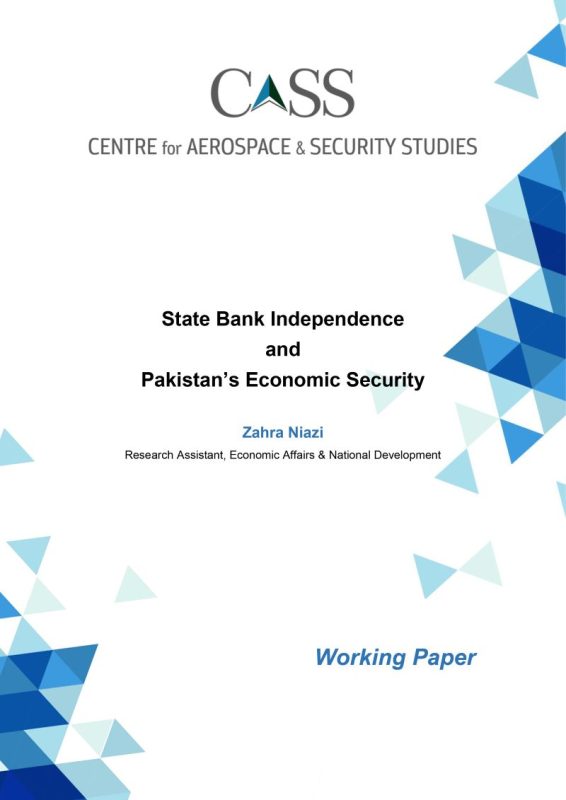Abstract
In 2022, Pakistan witnessed two simultaneous and substantial developments on the national front, i.e., formal endorsement of the first National Security Policy (NSP) of Pakistan, 2022-2026, and adoption of the State Bank of Pakistan (SBP) Amendment Act, 2021 as law granting statutory independence to the SBP. The NSP categorically emphasises the importance of economic security and places it at the core of the national security vision. Given the critical role of central bank policies on key macro- and socioeconomic variables, it remains pertinent to ascertain what the SBP independence could mean for Pakistan’s goal of economic security. In answering this, the paper presents detailed findings on the competing perspectives regarding SBP independence and draws their linkage with the domains of economic security highlighted in the NSP. The findings show that it is irrational and premature to deem any single perspective superior to another. At the same time, the study asserts that the SBP will have a critical role in determining Pakistan’s progress in the domain of economic security. Therefore, it puts forward recommendations that can help ensure that the institutional independence granted to the SBP works to supplement Pakistan’s efforts towards achieving the goal of economic security rather than acting as an impediment to it.





